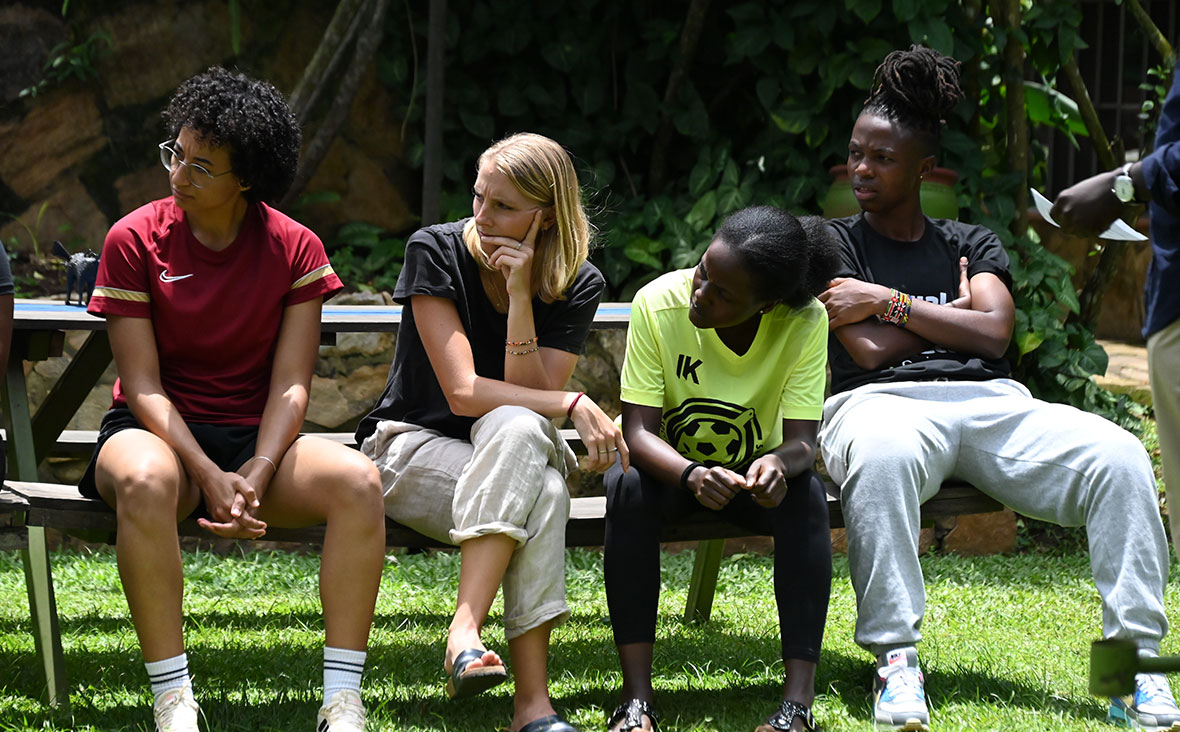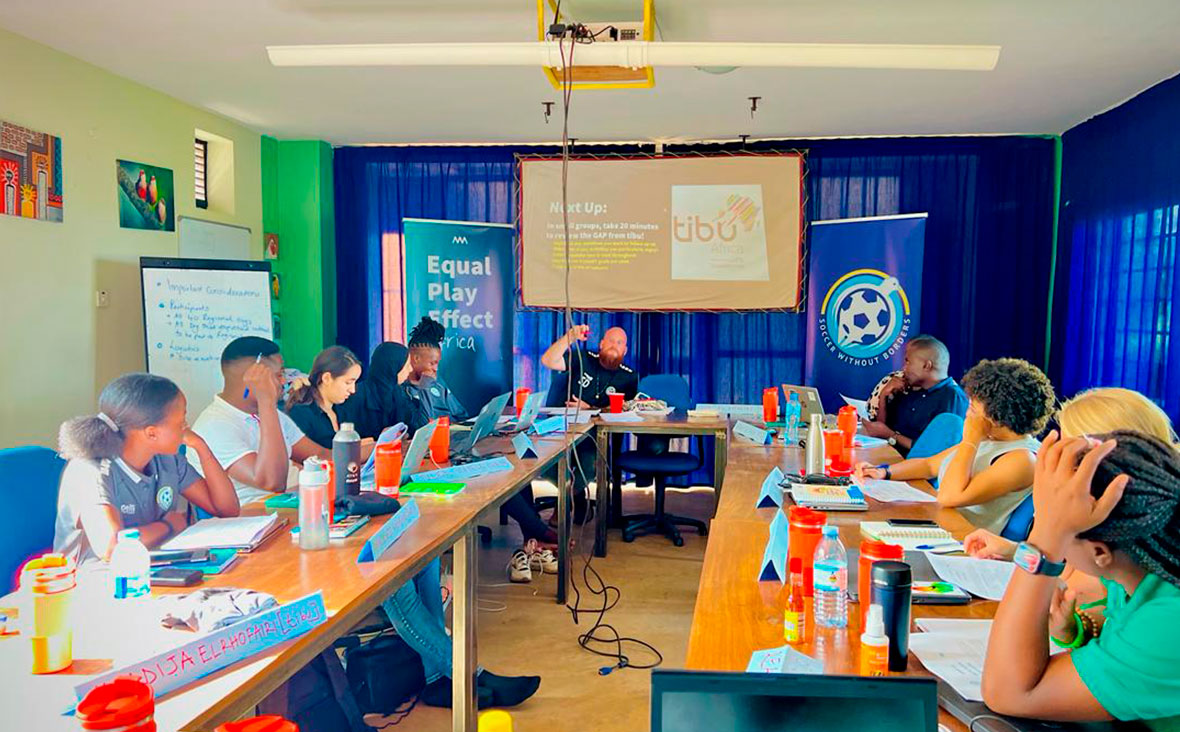“It’s a space for us to bring our minds together for a similar goal”
Immy teaches English to the youngest children at Soccer Without Borders Uganda, an organisation serving refugees and local youths, advancing social inclusion across the country.
When a human being has to flee a country, the world around them shifts.
According to the UNHCR, Uganda is the largest refugee-hosting country in sub-Saharan Africa.
More than 80% of the refugees are hosted in the North and South-West regions, and in the capital, Kampala, children find their first contact for integration in their classmates having started their new lives.
Immaculate Kabagahe has promoted this dynamic in her classroom, creating a place where everyone ends up feeling like they belong with the children helping and welcoming newcomers in their own language.
Immy, as she is known to everyone, teaches English to the youngest children (six to eight years old) at Soccer Without Borders Uganda, an organisation serving refugees and local youths, advancing social inclusion across the country.
She loves her job and understands what it entails because she has also been on the other side of it.
“When I was a kid, I came to Soccer Without Borders.
“I think I was 11 years old. I came to one of the festivals with a friend of mine back when it had just started,” added Immy.
Nine years later, Immy started working with SWB, and she came across an old photo album with a picture of her and her friend when they were children.
“You know how kids sometimes tend to be ill-mannered and we are seeing people that are not from our circle, we don't want to associate with them,” said Immy.
“So, when I started working it just dawned on me, I'm like wait a minute, I am working with these people now.”

For Immy, it became a motivation and a learning experience. A reminder of how you never know who you might cross paths with.
Most of the children she works with are refugees and most, if not all, come from French-speaking countries. When they arrive in Uganda, an English-speaking country, it is vital for their integration to learn the language.
“If we teach them English, we are giving them a platform and they can communicate and merge to live with the people,” added Immy.
And what better way to do that than through football?
The first thing football gives them is a place to be free and the second, a chance to forget and start over.
“Some of these young people leave their countries when they are old enough to understand what is happening,” said Immy.
“Some live without their parents, they just find someone, and that person becomes their guardian.
“We give them a place where they can express themselves because we have different discussions. They can find someone with the same story to talk to and tell things.
“Then, of course, they can release their stress and trauma through play.”
The diversity within the staff (Ugandan and Congolese people) plays a crucial role so that the children always feel they have someone who understands them.
Of course, the change of environment always comes with challenges.
“The first week is always a struggle.
“We use signs. We use anything we can use for someone to understand,” added Immy.
“They speak French, but I don't speak French. I only know Swahili. So, these kids show up in your class, you don't speak the language they speak, and they also don't understand the language you're teaching.
“However, we have some of the kids that have been in Uganda for more time. They can speak the other language and they have also learned a bit of English. So, we can use those to talk to their friends.”
At the end of the day, it is the children themselves who help teach and include more children.
Immy thinks that's beautiful.
Football and school always go hand in hand. When they have exercises or training on the pitch, they relate words to practical activities.
For example, if they learn the parts of the body in English in the classroom, they then repeat those words by saying which part of the body to hit the ball with. The lessons are part of the game.
The curriculum also prepares them for formal education, so those who go through SWB have no problems attending formal schools in Uganda.
Gender equality is another pillar. This year, Soccer Without Borders joined Equal Play Effect Africa, Common Goal's solution to accelerate progress towards gender equality in football.
Immy has been part of everything to date.
“It has been a great learning opportunity, getting more exposed to different people with whom we share the same ideologies,” said Immy.
“The problems or situations we face in Africa, I would say are not so different like religion, culture, norms and beliefs.
“I feel like it is a space for us to bring our minds together for a similar goal.”
They have created a team with new strategies and more minds to add to what is already underway on their side.
Through programmes, they are teaching girls about self-management, self-awareness and hygiene. There is also mentorship and accompaniment for girls from the age of 14 to 19.
To make it more holistic, teachers and coaches like Immy, encourage boys to be an active part of the programmes by talking about gender and what it means.
“We had boys commit to promoting gender equality and respecting girls' decisions and their voices,” added Immy.
“That is when we merged it with football, girls have to contribute to the game.”

In such an impactful job, it is not easy to stick to just one part, but for Immy it can sometimes be quite simple: the people.
Special days, such as International Women's Day or International Refugee Day, don't go unnoticed, they are celebrated. A way to give people their place.
Those mixed with the everyday greetings, “the hugs and smiles” make up the most special part of the job.